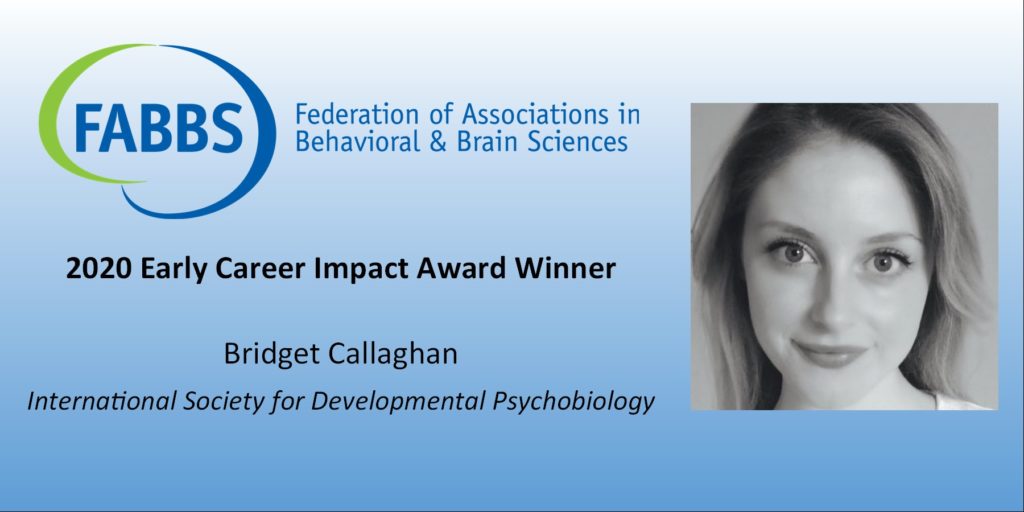

Bridget L. Callaghan
University of California, Los Angeles
Dr. Bridget Callaghan’s research examines how early-life experiences influence interactions between physical and mental health across the lifespan, including how early-life adversity impacts the gastrointestinal microbiome and increases risk for developing anxiety-related disorders. As both a clinically-trained psychologist and a basic science researcher, Dr. Callaghan performs interdisciplinary research linking physical and emotional health in children who experience extreme psychosocial deprivation due to institutionalized care, children who have experienced out of home (e.g., foster care) placements within the United States, and youth who have experienced physical illnesses in early life. Her work has been highlighted by several media outlets, including the AAAS Eureka Alert, Science Daily, and Huffington Post as some of the first evidence linking disruption of a child’s gut microbiome with activity in brain regions associated with emotional health.
Dr. Callaghan also conducted studies in rodent models of early-life adversity in which she showed accelerated maturation of fear-memory in male rats exposed to early-life trauma. This dysregulation of emotion was transmitted across generations but could be reversed by probiotic administration. These studies indicate that gut microbiome-targeted dietary interventions can ameliorate the effects of adversity on the central nervous system, especially during the first years of life when the developing brain and microbiome are more plastic.
In her Brain and Body Lab at UCLA, Dr. Callaghan and her group take a multi-faceted approach toward examining the effects of early-life adversity, including studying behaviors related to emotion and memory development, observing activation of underlying neural systems using fMRI, characterizing the gut microbiome using gene sequencing, evaluating basic physiological health (using e.g., gastric function, heart rate, skin conductance), and exploring the role of parental scaffolding in healthy emotional development. She also hosts a blog called “The Two Brains” (a reference to the gut as a second brain).
Dr. Callaghan is the recipient of numerous awards, including a K-99 Pathway to Independence Award from the National Institute for Mental Health, the Kucharski Young Investigator Award from the International Society for Developmental Psychobiology, as well as a Young Investigator Grant from the Brain Behavioral Research Foundation. She has published papers and acted as a peer-reviewer for scientific research in a diverse range of high-ranking journals, has guest-edited special issues, and is an active member of several professional societies. Dr. Callaghan’s work reaches a broad audience as she strives to create better mental and physical health treatments across development that are informed by psychological functioning, trauma history, and central and peripheral biology.
